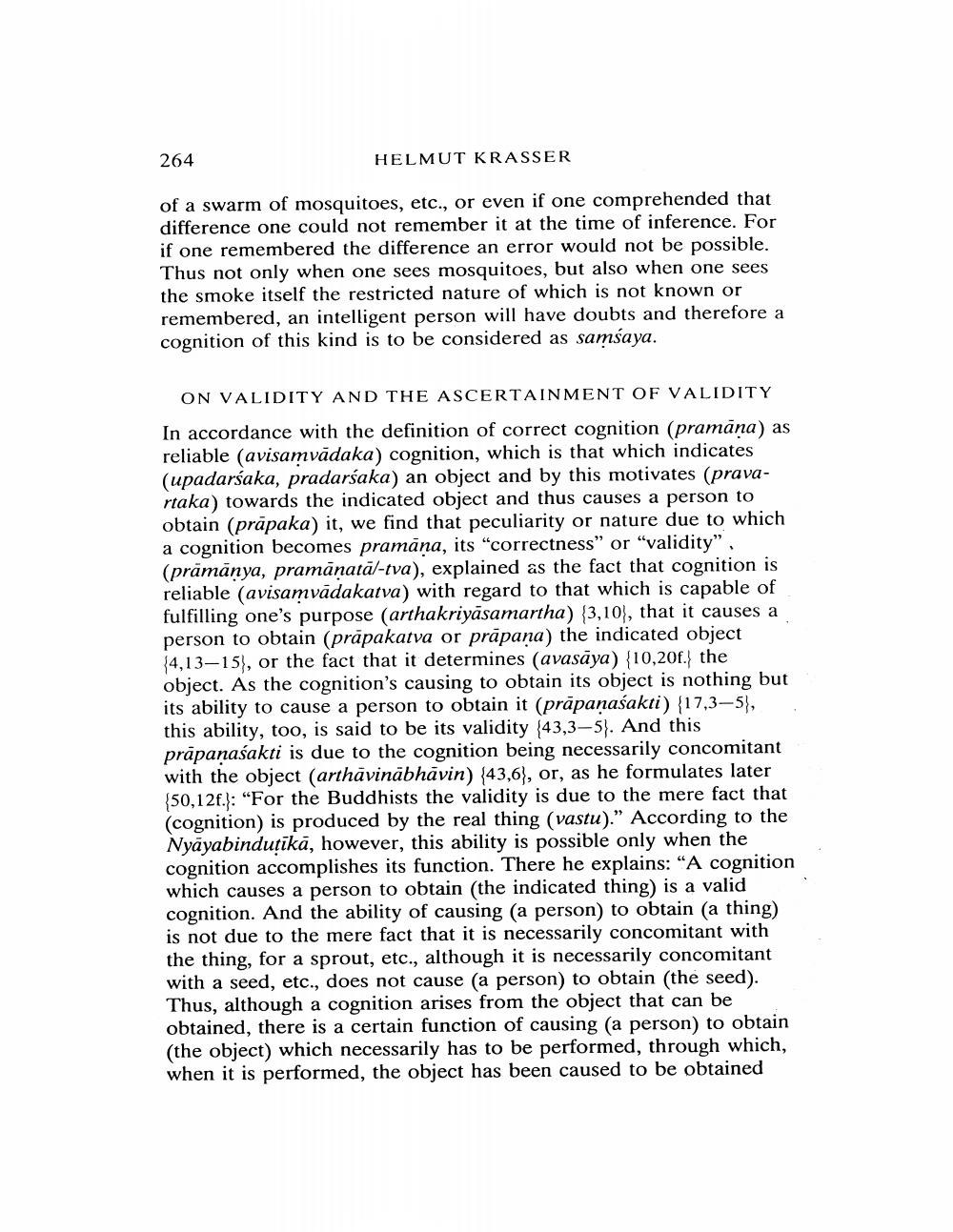________________
264
HELMUT KRASSER
of a swarm of mosquitoes, etc., or even if one comprehended that difference one could not remember it at the time of inference. For if one remembered the difference an error would not be possible. Thus not only when one sees mosquitoes, but also when one sees the smoke itself the restricted nature of which is not known or remembered, an intelligent person will have doubts and therefore a cognition of this kind is to be considered as samsaya.
ON VALIDITY AND THE ASCERTAINMENT OF VALIDITY In accordance with the definition of correct cognition (pramāna) as reliable (avisamvādaka) cognition, which is that which indicates (upadarśaka, pradarśaka) an object and by this motivates (pravartaka) towards the indicated object and thus causes a person to obtain (prapaka) it, we find that peculiarity or nature due to which a cognition becomes pramāna, its "correctness" or "validity" (prāmanya, pramanatāl-tva), explained as the fact that cognition is reliable (avisamvādakatva) with regard to that which is capable of fulfilling one's purpose (arthakriyāsamartha) {3,10, that it causes a person to obtain (präpakatva or prāpana) the indicated object {4,13–15), or the fact that it determines (avasāya) {10,20f. the object. As the cognition's causing to obtain its object is nothing but its ability to cause a person to obtain it (präpanasakti) {17,3–5}, this ability, too, is said to be its validity (43,3—5). And this prāpanaśakti is due to the cognition being necessarily concomitant with the object (arthāvinābhāvin) 43,6), or, as he formulates later {50,12f.: "For the Buddhists the validity is due to the mere fact that (cognition) is produced by the real thing (vastu)." According to the Nyāyabindutika, however, this ability is possible only when the cognition accomplishes its function. There he explains: “A cognition which causes a person to obtain (the indicated thing) is a valid cognition. And the ability of causing (a person) to obtain (a thing) is not due to the mere fact that it is necessarily concomitant with the thing, for a sprout, etc., although it is necessarily concomitant with a seed, etc., does not cause (a person) to obtain the seed). Thus, although a cognition arises from the object that can be obtained, there is a certain function of causing (a person) to obtain (the object) which necessarily has to be performed, through which, when it is performed, the object has been caused to be obtained




